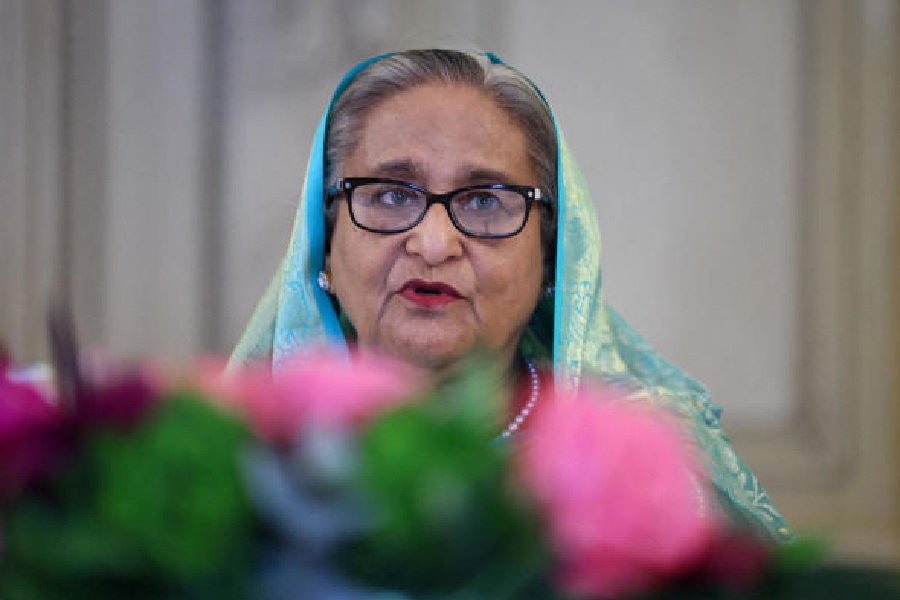Bangladesh's International Crimes Tribunal has started an investigation against former prime minister Sheikh Hasina and nine others on charges of genocide and crimes against humanity that took place from July 15 to August 5 during students' mass movement against her government.
A complaint was filed on Wednesday with the investigation agency of Bangladesh's International Crimes Tribunal against Hasina, Awami League general secretary and former road transport and bridges minister Obaidul Quader, former home minister Asaduzzaman Khan Kamal, and several other prominent figures within the party.
The complainant's lawyer Gazi MH Tamim confirmed on Thursday that the Tribunal started the probe, The Dhaka Tribune newspaper reported.
He said the investigation agency started the investigation on Wednesday night.
The Hasina-led Awami League along with its affiliated organisations is also named in the petition.
The petition was filed by Bulbul Kabir, the father of Arif Ahmed Siam, a Class IX student who was killed during the anti-discrimination student movement.
Kabir’s application accuses Hasina and others of orchestrating a violent crackdown on student protestors, resulting in widespread casualties and human rights violations.
The complaint came on a day when the interim government said that the murders conducted within the period from July 1 to August 5 would be tried by the International Crimes Tribunal.
Separately, a case of enforced disappearance was filed on Wednesday against Hasina and several others, including former ministers of her cabinet, on the charge of kidnapping a lawyer in 2015.
On Tuesday, a murder case was filed against Hasina and six others over the death of a grocery shop owner during last month's violent clashes that led to the fall of her government.
Meanwhile, a Dhaka court on Thursday asked police to submit by September 15 the probe report of the case filed against Hasina and six others over the death of grocery shop owner Abu Saeed in police firing in the capital's Mohammadpur area during the quota protests on July 19.
Dhaka Metropolitan Magistrate Md Zaki Al Farabi set the date after the case was placed before his court for the next course of action.
The student-led protests demanding reforms in government job quotas evolved into a government-toppling movement in early August.
Over 230 people died in Bangladesh in the incidents of violence that erupted across the country following the fall of the Hasina government on August 5, taking the death toll to 560 during the three weeks of violence.
Following Hasina’s resignation, a caretaker government led by Nobel laureate Muhammad Yunus was formed in the country, promising to address administrative and political reforms and hold accountable those involved in the violence.
Except for the headline, this story has not been edited by The Telegraph Online staff and has been published from a syndicated feed.










